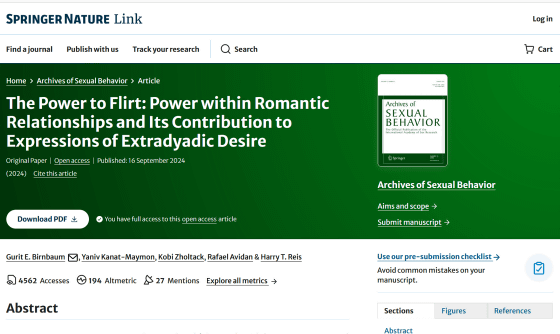People who feel they have more power than their partners are more likely to cheat

Previous research has shown that powerful people are more likely to be self-confident and assertive, and to act more impulsively. A new study on the relationship between power and romance has found that people who feel powerful in their relationships are more interested in alternative, new partners.
The Power to Flirt: Power within Romantic Relationships and Its Contribution to Expressions of Extradyadic Desire | Archives of Sexual Behavior

New research sheds light on why relationship power is linked to interest in alternative partners
https://www.psypost.org/new-research-sheds-light-on-why-relationship-power-is-linked-to-interest-in-alternative-partners/
Power in Relationships Increases Risk of Infidelity - Neuroscience News
https://neurosciencenews.com/power-relationships-cheating-psychology-28129/
A team of Israeli and American researchers conducted four experiments to investigate power imbalances in romantic relationships and the desire to cheat, recruiting participants who had been in a relationship with a different sex for at least four months.
In the first experiment, participants were split into two groups and asked to describe either a moment when they felt more powerful than their current partner or a typical day with their partner. They were then asked to write about a sexual fantasy they had with someone other than their partner, which was then used to measure their sexual desire to cheat.
In the second experiment, participants were divided into two groups and asked to describe either a moment when they felt more powerful than their current partner or a typical day with their partner. They were then shown photos of unfamiliar members of the opposite sex and asked to quickly judge whether they thought the person was a potential partner. This was to measure participants' subconscious reactions to attractive members of the opposite sex.

In the third experiment, participants were first told about the power dynamic between them and their current partner, then they were asked to interact face-to-face with a sexual partner and report their sexual desire for that person.
In the fourth experiment, couples reported on their power dynamics, partner value, and sexual fantasies about other people over a 21-day period to examine the effects of changes in power in everyday contexts on the desire to cheat.

Analyzing the results, we found that perceptions of power in the relationship were significantly associated with desire for a potential cheating partner: people who perceived themselves as more powerful in the relationship were more interested in cheating.
The research team wrote, 'Across four experiments, we found that feelings of power in romantic relationships significantly predicted interest in alternative partners, including thoughts, desires, and actual interactions. We also showed that the feeling of being more valuable as a mate than a partner that power brings helps explain the association between power and heterosexual desire.'
'People with a high sense of power may feel more motivated to ignore their commitment to a relationship and engage in short-term infidelity or to pursue new partners,' said study co-author Harry Reiss , a professor of psychology at the University of Rochester.
Related Posts:
in Science, Posted by log1h_ik







